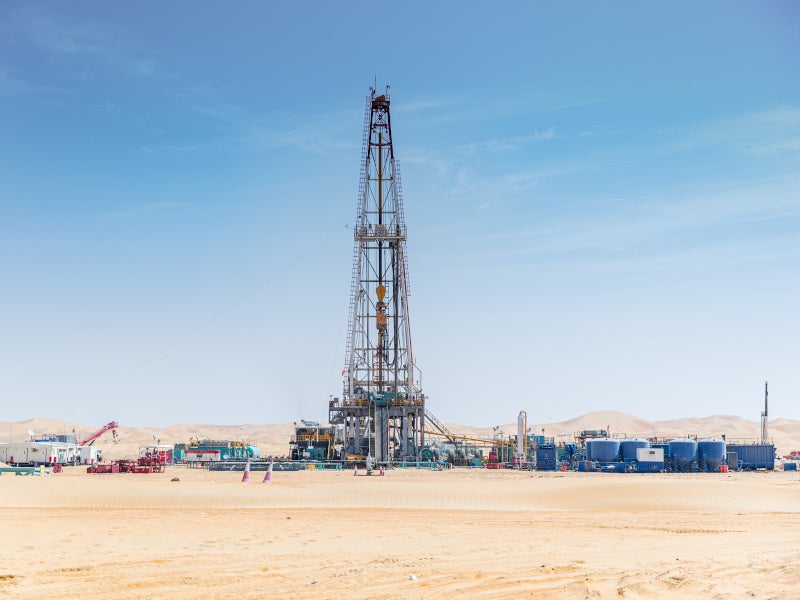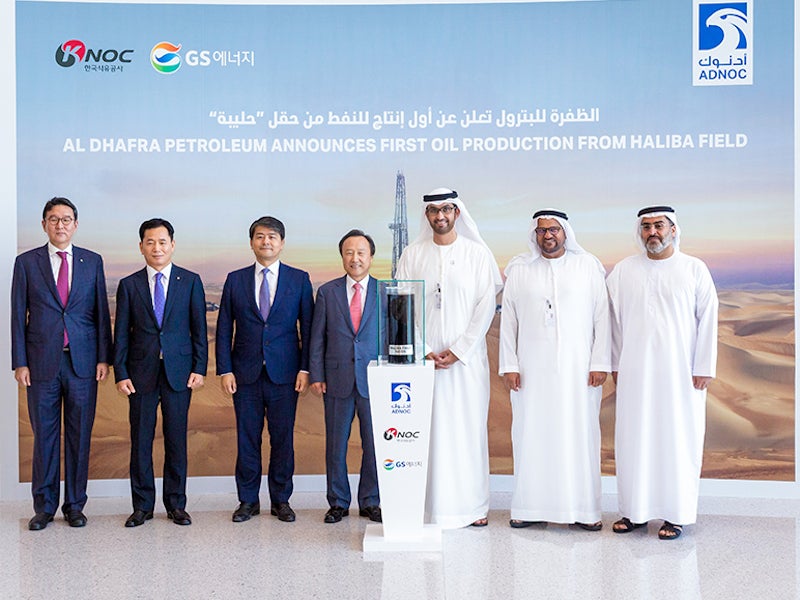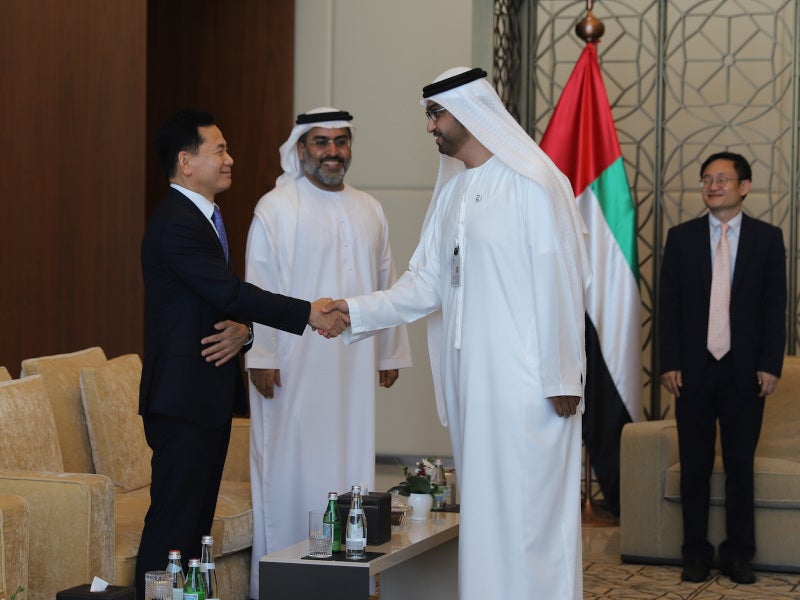The Haliba oil field, also known as the Area 1 onshore oil field, on the south-east border of Abu Dhabi in the United Arab Emirates (UAE) was brought on stream in July 2019.
The onshore oil field is owned and operated by Al Dhafra Petroleum, a joint venture between Abu Dhabi National Oil Company (ADNOC, 60%) and Korea National Oil Corporation (KNOC, 30%) and GS Energy (10%), which was established in 2014.
Being developed in two phases, the Haliba onshore filed was expected to reach peak production of 40,000 barrels of oil per day (bopd) by the end of 2019 in phase one and ramp-up to 60,000bopd production capacity by 2023 in phase two.
Al Dhafra Petroleum produced the first oil from the Haliba field in July 2019 while the first oil shipment to South Korea took place at the Fujairah Port in September 2019. The Haliba oil field development is intended to export up to 5.8 million barrels of crude oil annually.
Haliba oil field development background
KNOC and GS Energy were granted the concession of Area 1, 2, and 3, three untapped oil blocks of Abu Dhabi in March 2012. The joint venture company Al Dhafra Petroleum was established in the first quarter of 2014.
The development partners announced the first oil discovery at the Haliba field in the Area 1 block by drilling the first appraisal well Haliba-3 in May 2014 that successfully pumped 10,000 barrels of oil a day.
The subsequent well tests at the field increased the estimated oil in place at Haliba to 1.1 billion barrels.
Located in Area 1, Haliba is the first field to be developed by Al Dhafra Petroleum. The three blocks operated by the joint venture are estimated to contain 2.3 billion barrels of oil. Area 1 and 2 are located onshore while Area 3 is an offshore block.
Haliba oil field infrastructure
The phase one development of the Haliba onshore oil field comprises 32 wells along with flowlines and a central gathering facility.
The crude output from the Haliba central gathering facility is pumped through a 65km-long pipeline connecting ADNOC Onshore’s Asab central degassing station for processing.
After processing, the stabilised crude oil is transported through ADNOC’s existing main oil lines to the marine terminals for export.
The Haliba oil field receives power supply through 132kV and 33kV overhead electrical transmission lines.
Haliba is expected to serve as the main production hub for Al Dhafra Petroleum’s concession area that hosts up to 70 additional prospects.
Contractors involved
SNC-Lavalin was awarded a front-end engineering and design (FEED) contract by Al Dhafra Petroleum for the phase two development of the Haliba field in January 2020. The scope of the contract includes the development of surface facilities to support long-term production from the main plant as well as the production prospects in the north and south extension areas.
Petrofac was awarded a maintenance service contract by Al Dhafra Petroleum to support Haliba oil field operations in September 2019.
L&T Hydrocarbon Engineering, a wholly-owned subsidiary of India-based engineering and construction company Larsen & Toubro (L&T), was awarded an engineering, procurement, and construction (EPC) contract worth £249.43m ($345m) for the phase one Haliba oil field development project in February 2018.
The scope of the contract included the engineering, procurement, construction and commissioning of flow lines, gathering facilities and the 65km pipeline to transfer crude oil to the processing facility at Asab, apart from the installation of 132kV and 33kV overhead electrical transmission lines to supply power to energise the oil field.
Obaid Alqubaisi Contracting (OQC) was sub-contracted by L&T Hydrocarbon Engineering for general civil and building works at the Haliba oil field, while Haimo Energy Technology carried out the factory acceptance test (FAT) for the Haliba oil field project in December 2018.





